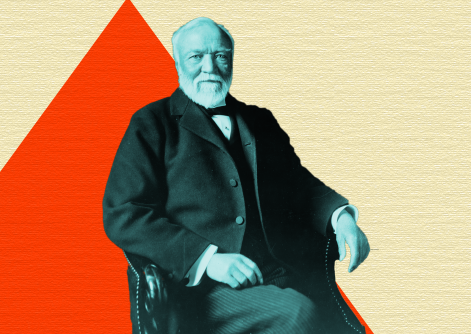They also tell him that they are sitting on at least $1.8 trillion in cash, rather than investing it as the economy desperately needs, because of “uncertainty surrounding regulations and taxes.” Indeed, one CEO said, “Almost every [government] agency we deal with has announced some expansion of its authority, which naturally makes me concerned about what’s in store for us.” Another executive “pointed out that between the health-care bill, financial reform and possibly cap-and-trade, his company had lawyers working day and night to figure out the implications of all these new regulations.”
Add in one last datum – most CEOs who spoke with Zakaria, as well as the Business Roundtable, supported Obama’s election but are now discomforted by his "anti-business" behavior – and you have confirmed the enduring wisdom of Irving Kristol (1920-2009), philanthropist and public intellectual extraordinaire.
For a strong dose of that wisdom, read the latest publication from the Bradley Center for Philanthropy and Civic Renewal: “The Problem of Doing Good: Irving Kristol’s Philanthropy.” It combines the transcript of a conference on Kristol’s legacy; reminiscences from colleagues; and two classic essays by Kristol: his notorious 1980 speech to the Council on Foundations (“Foundations and the Sin of Pride”) and “On Corporate Philanthropy.”
Two great philanthropic lessons Kristol taught are vividly displayed in Zakaria’s column: First, that the business world doesn’t quite understand it is under siege from those who sneer at it, and second, that those who look down at commerce may end up strangling the source of their own life blood.
In his corporate philanthropy essay, published in 1977, Kristol bemoaned the way businessmen seem “blithely unaware” that there is a war of ideas over the value of free enterprise. The anti-business side of the war consists of members of what Kristol called the New Class “who sincerely believe that the larger portion of human virtue is to be found in the public sector, and the larger portion of human vice in the private.” The New Class are the intellectuals and professionals who predominate in foundations, universities, and the media, a strong majority of whom have scant regard for the business sector which supplies the money that makes their own work possible.
Kristol was writing shortly after Henry Ford II famously resigned from his family’s foundation and asked this “creature of capitalism” to consider that “the system that made the foundation possible very probably is worth preserving.” Kristol’s article appeared in the Wall Street Journal, where for a quarter-century he wrote a column and struggled to persuade business leaders to support philanthropically those New Class members who did not despise the world of commerce.
Alas, this effort enjoyed less success than almost any of Kristol’s undertakings, as his friends note in the Bradley Center discussion. (His brightest achievement in this area came with the launch of the Philanthropy Roundtable, which continues to help donors think wisely about philanthropy and the ways their giving can strengthen a free society.)
Kristol shocked the Council on Foundations with his speech, which deplored the pride of those, all too common in the nonprofit world and government, who pridefully imagine they possess grand, disinterested wisdom as to “where society should go.” As he put it in his corporate philanthropy essay, these unhumble folk seek “constructive social change” – doesn’t that sound familiar? – which “is always something that government does for and to people, never something that people do for and to themselves – and most definitely nothing that American business does for or to anyone.”
According to Zakaria, today’s business leaders have begun to recognize that their ability to keep the nation prosperous is endangered by just this mentality. Perhaps now some will read a bit of Kristol and contemplate how they can support better ideas through “productive investments in the intellectual and educational worlds.” (Hint: look at "Strategic Investments in Ideas," published by the Philanthropy Roundtable.)
Of course, businesses aren’t the only ones who should worry whether hubristic efforts to change society will endanger them. Charities and donors should reflect on Jeff Cain’s post here yesterday, which warned of the “tax increase tsunami” headed for the country, a flurry of tax changes that “will have a direct and adverse impact on charitable giving” after the sector has already seen two terrible years in a row.
America’s businesses aren’t the be-all of the nation. But donors, charities, and even tax collectors should recall that they are dependent on privately earned money. As Irving said three decades ago, “it is time foundations” – and all of us – “gave a little more thought to the source of that life blood.”





